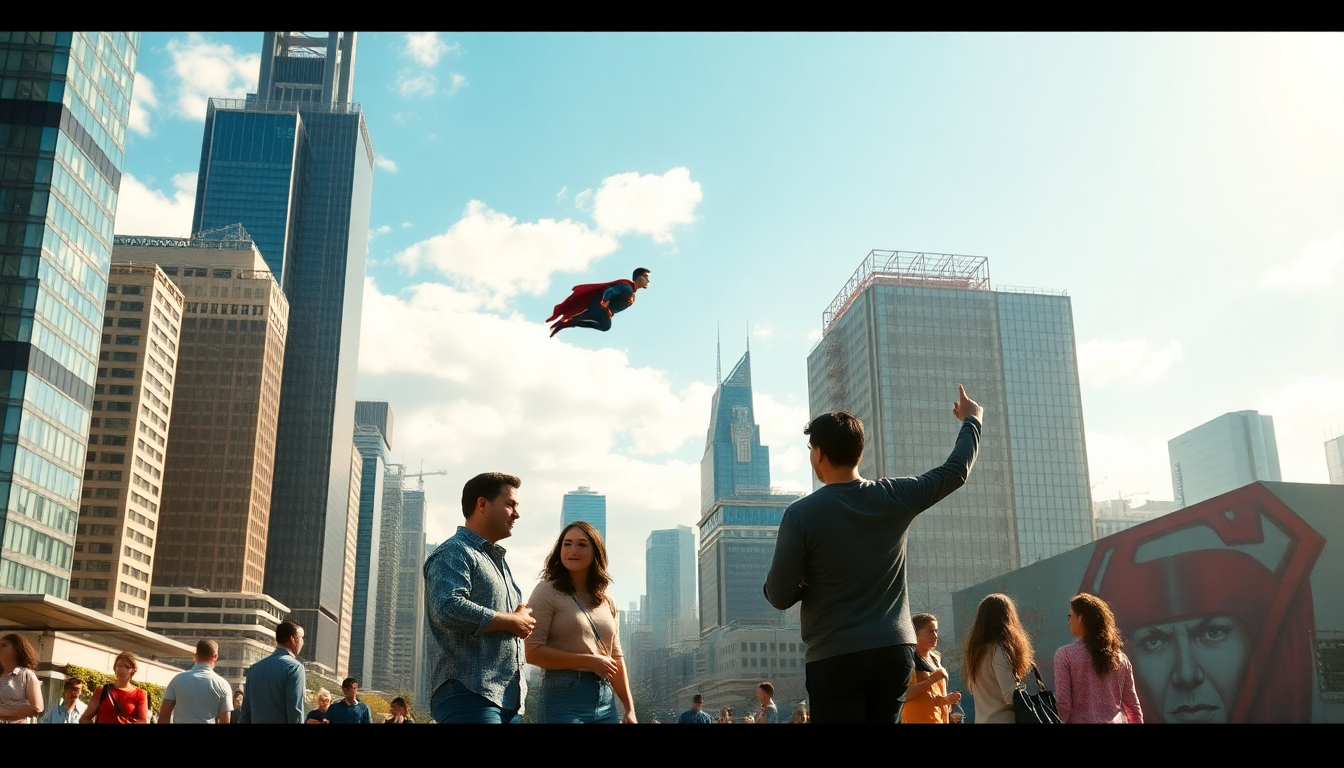Table of Contents
The recent release of the new Superman film signals a fresh direction for the superhero genre, showcasing not just jaw-dropping visual effects but also a deeper dive into character relationships and the societal issues we face today. Set in the iconic city of Metropolis, the film cleverly mirrors contemporary challenges while still nodding to the rich legacy of comic book storytelling. This innovative approach helps audiences form a stronger connection with the characters, suggesting that superhero tales can be both thrilling and reflective of real-life complexities. Isn’t it exciting to think how these stories can resonate so closely with our own experiences?
The Changing Landscape of Superhero Cinema
When we think about superhero films, it’s clear that the landscape has undergone a remarkable transformation over the last two decades. The latest Superman installment, brought to life by DC Studios, perfectly exemplifies this shift. The film presents a world where super-powered beings have been woven into the fabric of everyday life for ages, creating a unique opportunity to explore how society adapts to these extraordinary circumstances. Instead of focusing solely on the chaos that follows a massive battle, the narrative shifts to the emotional and psychological toll on the citizens of Metropolis, who display an incredible resilience in the face of disasters. How does one truly cope when surrounded by such extraordinary events?
In stark contrast to earlier films, where the mere appearance of supervillains would send the public into a tailspin, the citizens in this movie show a remarkable familiarity with danger. This subtlety adds layers to the storytelling, allowing us to watch how characters navigate their personal challenges against the backdrop of superhuman events. It’s a refreshing take that reshapes our expectations for superhero narratives. Are we ready to embrace a more complex understanding of what it means to be a hero?
Internal Conflicts Take Center Stage
One of the standout features of the new Superman film is its emphasis on internal character struggles over external threats. Superman’s journey goes beyond just facing off against Lex Luthor or engaging in epic battles; instead, he wrestles with profound questions about his origins and the true implications of his powers. By shifting the focus from external villains to internal conflicts, the film presents a hero who feels relatable and real. Don’t we all grapple with our own identities and the expectations placed upon us?
Lois Lane also experiences significant growth, as she confronts her own issues of commitment and vulnerability. This development elevates her from a typical love interest to a fully fleshed-out character with her own story arcs. Such layered storytelling not only deepens our understanding of the characters but also mirrors modern themes around identity, responsibility, and the search for belonging. How often do we see ourselves in the struggles of characters we admire?
Future Trends: Implications for the Superhero Genre
The implications of this new approach to superhero storytelling are nothing short of revolutionary. As audiences crave narratives that reflect their own experiences, filmmakers are likely to delve deeper into themes of internal conflict and societal issues. This evolution hints at a shift away from the classic good versus evil narrative, opening the door to a more nuanced exploration of character motivations. What fresh perspectives might this bring to the genre?
Furthermore, striking a balance between escapism and realism remains a crucial ingredient for the success of superhero films. By acknowledging the complexities of the human experience within these fantastical settings, filmmakers can craft a viewing experience that is both engaging and thought-provoking. As we look to the future, it’s exciting to envision how this new wave of superhero cinema will continue to evolve, captivating audiences while reflecting the intricacies of our modern lives. Are we ready for this new era of storytelling?


